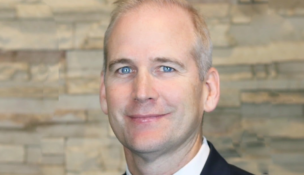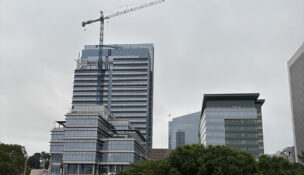VCU hosts real estate trends conference in Richmond
The commercial real estate industry should see similar positive gains next year as it did in 2018.
That was the consensus of opinions offered by local real estate leaders in a video compilation shown Thursday at Virginia Commonwealth University’s Kornblau Real Estate Program’s 28th annual Real Estate Trends Conference at the Greater Richmond Convention Center. Participants didn’t predict any major changes in 2019.
The Virginia Commonwealth University’s annual real estate trends conference focused on the overall health of the economy and the impact of new technology on the real estate business.
The first speaker was Elliot Eisenberg, an economist and humorist, who told the crowd much of the U.S. economy is doing well. He said a recession would eventually come but no one can say when.
“The economy will definitely slow down,” Eisenberg said. “Eventually we will have a recession.”
Positive aspects of the current economy include a relatively strong stock market and small business confidence, Eisenberg said. Troubling signs he highlighted were high levels of corporate and student debt. Eisenberg said that Virginia’s overall economy is doing well.
Steve Weikal, the head of industry relations at the MIT Center for Real Estate, also addressed the conference. Weikal addressed the ways technology will continue to change the nature of the real estate business.
Weikal said there has been an increase in real estate technology startups, which today number in the thousands. He said the rise in investment in these companies has functioned as research and development for the real estate industry.
Weikal said traditional industries are being broken down and pieced back together as part of a phenomenon he called “real estate fracking.” Examples of this include companies like WeWork, which offers coworking spaces, and Airbnb, a platform for short-term rentals.
Both of those companies are successfully competing with traditional models of office and hotel operations.
Weikal said this phenomenon will continue to spread across different parts of the economy.
-

















